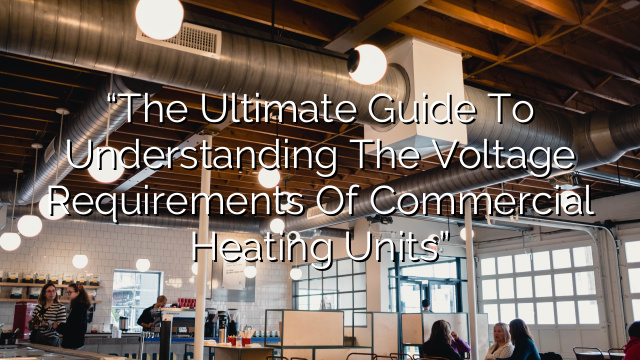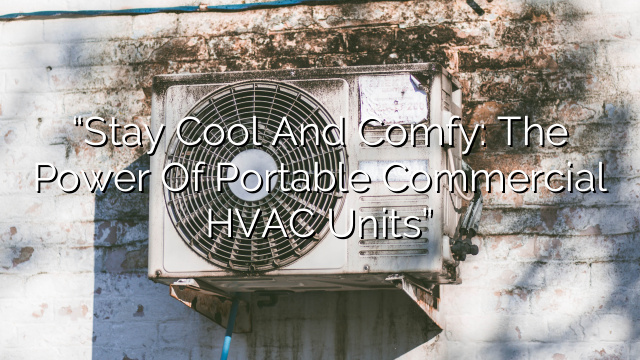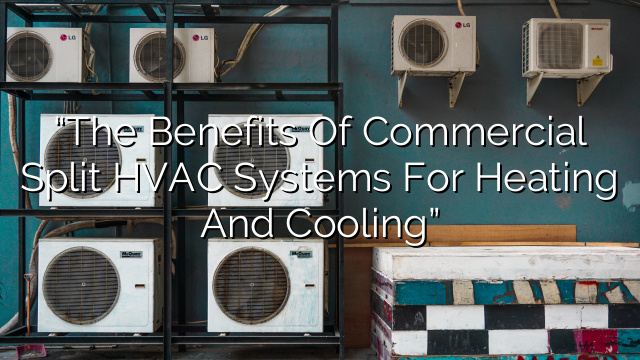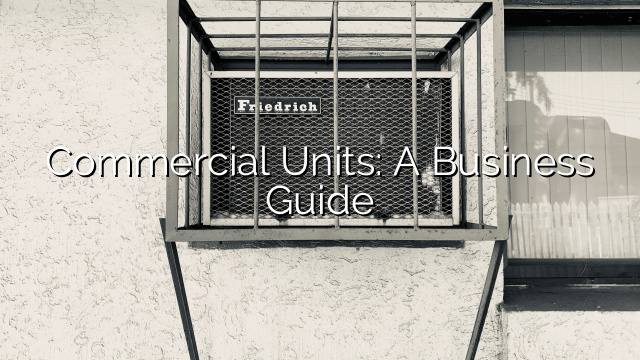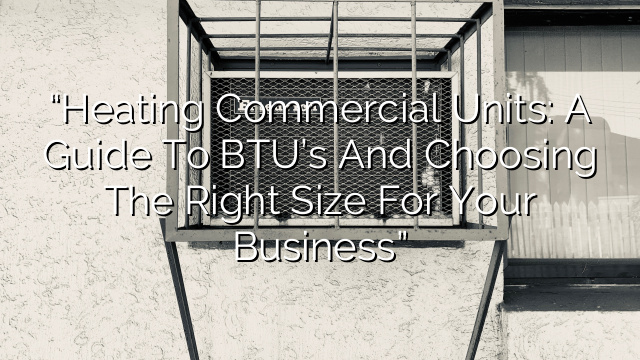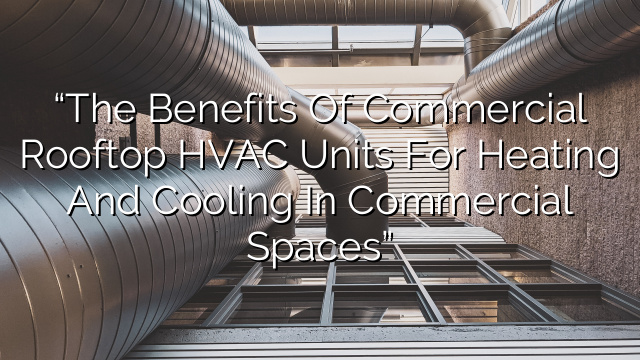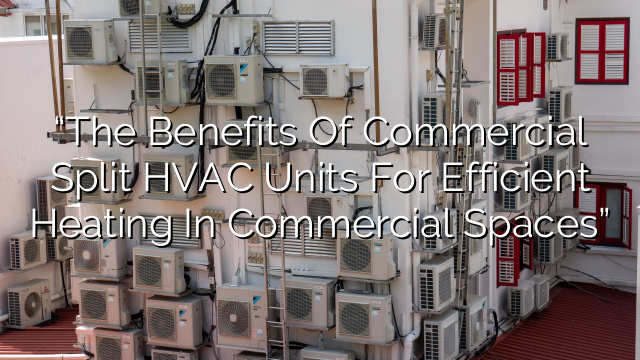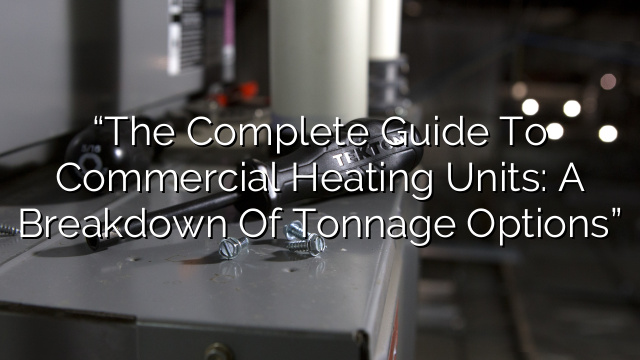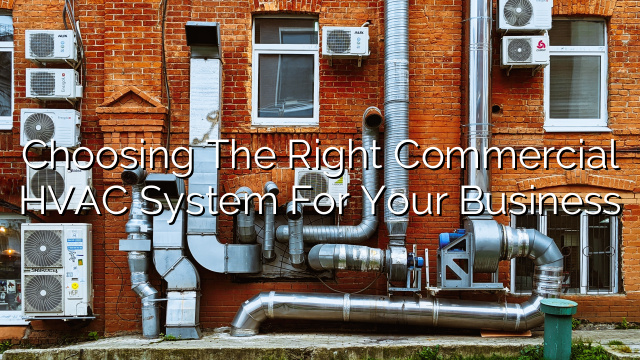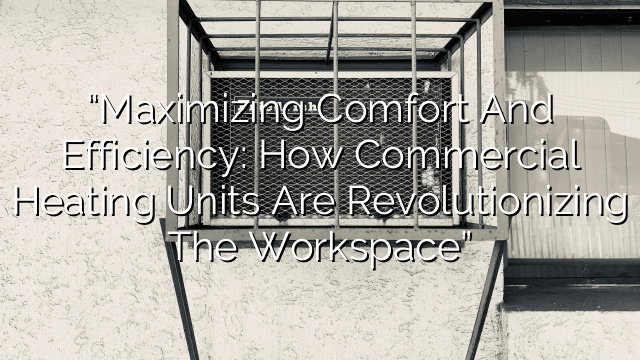Commercial heating units play a crucial role in keeping businesses warm and comfortable during the colder months. However, understanding their voltage requirements can be challenging for many business owners and facility managers. In this guide, we will break down the different voltage options available for commercial heating units and help you make an informed decision for your heating needs.
Why is Voltage Important for Commercial Heating Units?
Voltage is the electrical power that runs through a heating unit. It determines how much heat the unit generates and how efficiently it operates. Choosing the right voltage for your commercial heating unit ensures that it functions optimally and saves you from potential electrical and heating issues.
Common Voltage Options for Commercial Heating Units
- 208 Volts: This voltage option is commonly used for smaller commercial heating units. It is suitable for spaces with lower heating demands, such as small offices, retail stores, or restaurants. However, it may not be sufficient for larger areas or spaces with higher heating requirements.
- 208 / 230 Volts: This dual voltage option allows for flexibility in terms of electrical supply. It is suitable for medium-sized commercial heating units and can handle a moderate heating load. It is commonly found in spaces like medium-sized warehouses, workshops, or small manufacturing facilities.
- 460 Volts: This higher voltage option is suitable for larger commercial heating units with significant heating demands. It is commonly used in spaces that require an intense heating output, such as large warehouses, manufacturing plants, or commercial storage facilities.
- 208 / 240 Volts: Similar to the 208 / 230 volts option, this dual voltage option offers flexibility for electrical supply. It is suitable for medium-sized commercial heating units with moderate heating loads.
When determining the voltage requirement for your commercial heating unit, it is crucial to consider the specific heating demands of your space. A professional HVAC technician can assess your area’s heating needs and recommend the suitable voltage option.
Factors to Consider When Choosing the Right Voltage
- Heating Load: The size and heating requirements of your space play a significant role in determining the appropriate voltage. Larger spaces with extensive heating needs may require higher voltage options.
- Electrical Infrastructure: Assessing your building’s electrical infrastructure is essential to ensure it can support the chosen voltage. Upgrading the infrastructure may be necessary to accommodate higher voltage options.
- Energy Efficiency: Higher voltage units are generally more energy-efficient, as they can generate more heat using less power. However, it is essential to balance energy efficiency with the specific heating demands of your space.
- Budget: Consider your budget when selecting the voltage option. Lower voltage units are generally more affordable, but they may not provide sufficient heating for larger spaces.
Frequently Asked Questions (FAQs)
Q: Can I use a voltage converter to change the voltage of my commercial heating unit? A: It is not recommended to use voltage converters for commercial heating units. These units are designed to operate on specific voltages, and using a voltage converter may lead to compatibility issues and potential malfunctions.
Q: What if I choose the wrong voltage for my commercial heating unit? A: Choosing the wrong voltage can result in heating inefficiency and possibly damage the unit. It is crucial to consult with a professional HVAC technician to determine the appropriate voltage for your specific heating needs.
Q: Can I upgrade the voltage of my existing commercial heating unit? A: In some cases, it is possible to upgrade the voltage of your existing commercial heating unit. However, this process requires professional assistance and may involve modifications to your building’s electrical infrastructure.
Q: How do I determine the heating load of my space? A: Determining the heating load of your space requires calculating the square footage, insulation levels, desired temperature, and other factors. It is recommended to consult with an HVAC professional who can perform a proper heating load calculation for accurate results.
Q: Can I use a different voltage than the one recommended by the manufacturer? A: Using a different voltage than the one recommended by the manufacturer can void the warranty and potentially damage the unit. It is essential to follow the manufacturer’s specifications to ensure optimal performance and longevity of the commercial heating unit.
In conclusion, understanding the voltage requirements of commercial heating units is essential for maintaining optimal heating performance and efficiency. Be sure to consider your space’s heating demands, electrical infrastructure, and budget when choosing the appropriate voltage option. For expert assistance with selecting and installing the right commercial heating unit for your business, consult with a licensed HVAC technician.

